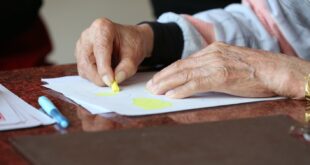The average age for women going through menopause is 51 and while it is a very big deal for some, a lot of women sail through menopause hardly noticing it at all. Periods are not a lot of fun and having them gradually disappear from your life is often a cause for celebration.
In this day and age, being in your early 50s also means you are likely to be in a senior role in your career and dealing with grown-up children leaving the nest. You are also likely to be picking up a lot more responsibility for caring for your parents, and maybe even your partner's parents as well. Some women are also grandparents and taking on childcare duties when they are not at work.
All that responsibility and stress plus the physical changes that occur in menopause can pack quite a punch. Dropping oestrogen levels can mean a drop in bra size, a lower breast line and thicker waistline. However, those things pale into insignificance for the unlucky few who find menopause a real trial.
If you are numbered among them, one of the first places a difficult or tricky menopause can show is in the bedroom. When you are used to a healthy libido, a temporary or long-term drop in a desire for intimacy that can herald menopause can come as quite a shock. It can represent an even bigger one to partners and husbands.
Depending on how fast and far those hormone levels drop, not only are some women adjusting to less interest in sex, they also have to contend with a thinning of the vaginal walls and/or vaginal dryness which can make sex painful. The good news is there are more solutions to these things now including oestrogen creams, supplements that can take the worst of the swing out of hormonal highs and lows and help you sleep. There are also low-dose hormone treatments. The important thing is to seek help early. See your GP or a specialist to go through the options that can help you.









Join the Discussion
Type out your comment here:
You must be logged in to post a comment.